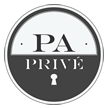A good curriculum vitae – or CV – is vital when looking for work, especially when there are numerous candidates for the same job, so what should it contain?
It takes recruiters an average of “6 seconds before they make the initial “fit or not fit decision” on candidates based on CVs, according to research conducted by The Ladders.
Click through if you need advice with personal assistant interview questions or PA interview questions.
What to include
Always accompany your CV with an introductory covering letter giving relevant information about how you would suit the job.
Tips to keep in mind.
• Keep to the employer’s submission requirements – .doc, pdf, docx, rtf
• Brief is best – more details about your current or recent jobs, less about the past
• Clear, straightforward text – make sure everyone can understand it
• Use one font – formatting matters and easy to read makes you stand out
• Put contact information at the end – not the start or middle
• Highlight specific skills – relevant to the job you’re applying to
Personal Details.
Put your name and contact info at the top.
• First and last names
• Current address (and postal address if different)
• Home and mobile phone numbers (recorded messages should be professional, if applying for work overseas, include international codes)
• Email address (avoid using unprofessional email addresses)
• Citizenship or residency status (only if requested by the employer)
Don’t include personal information such as your date of birth.
YOU SHOULD THEN INCLUDE THE FOLLOWING:
Objective This is the focal point of your resume.
The position you are seeking in specific terms. Your objective should be simple yet directly related to your qualifications and accomplishments.
Work Experience.
This section gives your employment history. It lists former employers, locations, dates and the jobs you held. You’ll also add your duties and achievements.
Starting with your most recent job first. Include dates and temporary or voluntary jobs if appropriate.
Use bullet points to list responsibilities and accomplishments. Under each job or experience you’ve had, list your responsibilities and accomplishments in no more than three to five bullet points.
Education.
Keep information about your education as short as possible. Include only relevant education information: the name of your college, your degree, and the year you graduated.
Skills/Certifications: Skip the Generals, Be Honest.
What you want to do with this section is show which skills you have that set you apart. It is good to mention your abilities and knowledge, you possess and which could be also useful when doing your job. The most frequent knowledge: foreign languages, computer literacy, economic knowledge (economic correspondence, fast typing). It is the best to mention the level of advancement for each language or PC skill (beginner, user, expert). Do not forget to give the information about the driving licence.
Length. The length of your CV should reflect years of experience.
2 – 3 pages for a graduate with little professional work experience.
3 – 4 pages for a graduate with a considerable work history.
Spelling and Grammar Check.
Keep the correct verb tense. Use past tense for previous jobs and present tense for current jobs. Don’t use personal pronouns.
Use the right keywords. Insert keywords for your niche.
Also, while many keywords are industry specific, certain phrases are important to almost all companies. For example, these include problem-solving, teamwork, leadership, business development.
Don’t use many colours unless you know how to use colour. Using black and blue for hyperlinks is plenty.
Interest and Activities. Don’t list your hobbies (Optional)
Hiring managers only care about what you can do for the company, so if you can’t connect your hobbies to the job you’re applying for then leave them off your CV. If your extracurricular activities are relevant, you can include them briefly at the bottom.
Don’t list your references- unless is specifically asked.
References upon request .They can be oral or written, professional or personal, but should include how the person knows you and his / her status, signed (if written) name in capital letters, dated, phone numbers- daytime, home and mobile if possible. Don’t forget to tell your references ahead of time that a future employer may be calling.
Rewrite your CV for each job application. If you really want a job, your prospective employer isn’t going to be impressed by your inability to adjust one 3-page document to meet their needs. Highlight the top 3 to 7 things you’ve done that match up with the requirements of the job.
Don’t send the exact same CV out for every job, read the job advert carefully and adjust accordingly.
Have you ever had your CV prevent you from getting a job?







